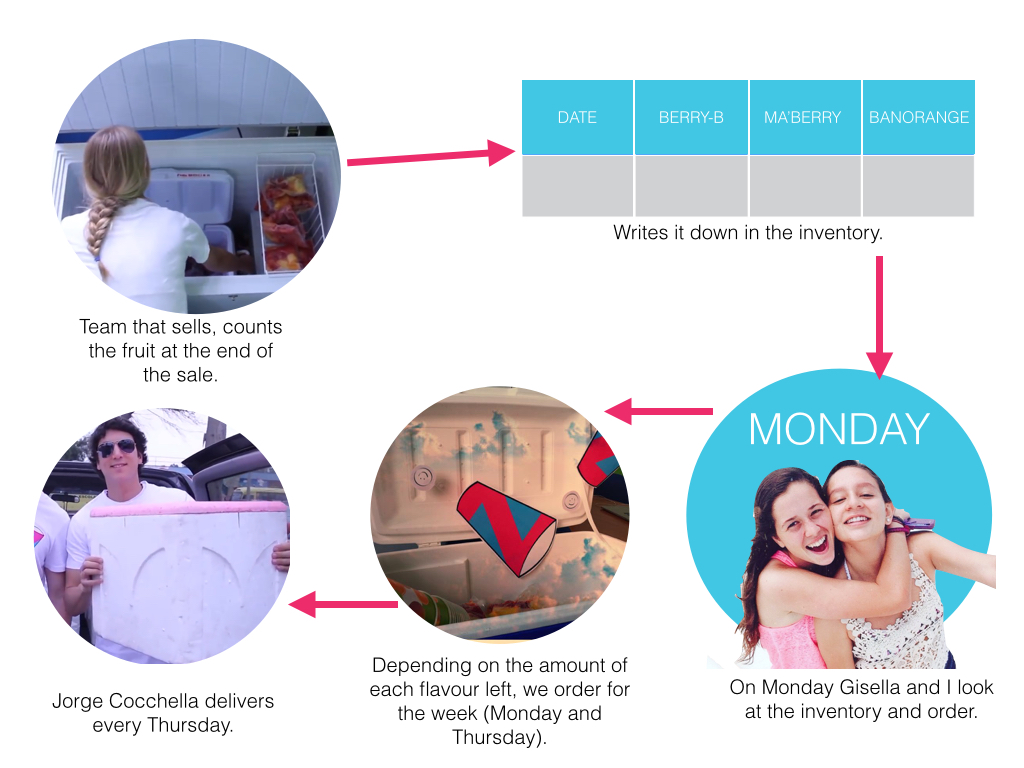|
Every morning—during the week—my alarm screams "wake up" at 6:20 am, I stand up and walk to the shower, change, brush my hair and teeth, dry my hair, disconnect both my computer and phone from their chargers, walk out to the breakfast table, eat, put on my shoes, and finally, at 7:00 am sharp, I’m already pressing the elevator button to go downstairs to the car. I follow this ROUTINE everyday—unconsciously—because it has helped me to be EFFICIENT, stay ORGANIZED, and REMEMBER to bring everything to school. We all have systems and they make us more PRODUCTIVE. Schools have systems, businesses have systems, and even the human body has systems. We have to SYSTEMATIZE certain things in order to make then a constant habit, instead of just having another task we have to complete. When you have a system, you know exactly when to do that something it and how to do it, things FLOW by themselves; however, without systems, you have to set yourself remainders to do things and sometimes you MISS them. Last class—in Blendz—Gisella and I created a system so that the ordering of fruit runs smoother. Every week, we drown Jorge Cocchella’s email inbox with fruit orders, we order different quantities and flavors each time. It gets CHAOTIC and BEWILDERING. This week, for example, we forgot to order for the Monday 16 because we didn’t know how many smoothie bags we had, how much had to be ordered, and what flavor had to be ordered. Our department was FALLING APART because of a lack of structure; we had no inventory or ordering system, and since none of us were participating in the Monday’s sale, we completely forgot to order. Thus, we had to make an EMERGENCY call and rush our order. No fruit means: UNHAPPY customers, and LOST sale opportunity. Systems don’t have to be too SOPHISTICATED nor PUZZLING, they can be simple reminders or short routines that allow your business to run tranquil. Just like they talk about in “The Checklist Manifesto”, they shouldn’t have more than NINE steps, which is the average capacity a human can remember. Once a routine becomes a habit, you have nothing to worry about, no more missing tasks, no more mistakes, and no more rushing orders. For Blendz sales, we ‘ve decided that every Monday we are selling Ma’Berry, every Thursday we are selling Berry-B, and both days we are selling Banorange since it’s the only non-diary smoothie we have. The system for ordering goes as following: This structure will facilitate our supplier’s PRODUCTION and DELIVERY, and it will also allow us to stay coordinated, and make sure we always have enough fruit for the events, even when we are not the ones in shift to sell. Now, we only have to order once a week, same flavors, and same amount. No more SATURATED inboxes. AUTONOMY is key in a company--and anywhere really--because it fosters CREATIVITY and INNOVATION. This is why we have to break out from that squared, structured, systematic box. Nonetheless, it’s important to maintain organization and accounting of things, this is why SYSTEMS are created. We should create structures that keep us on top of things, but don’t limit our imagination. We should create structures that are detailed, but don’t make us sheep. We should create structures with different steps, but have space to freely pivot or modify things if needed. We should use systems to organize our creativity and company, they should't be threatening, if so, something has to be changed. SYSTEMS, are essential for success.
1 Comment
Corey Topf
3/20/2015 05:08:51 am
Rue! This quote here belongs in a book: "We should create structures that keep us on top of things, but don’t limit our imagination. We should create structures that are detailed, but don’t make us sheep. We should create structures with different steps, but have space to freely pivot or modify things if needed. We should use systems to organize our creativity and company, they shouldn't be threatening, if so, something has to be changed. SYSTEMS, are essential for success."
Reply
Leave a Reply. |
Archives
August 2016
Categories |


 RSS Feed
RSS Feed
